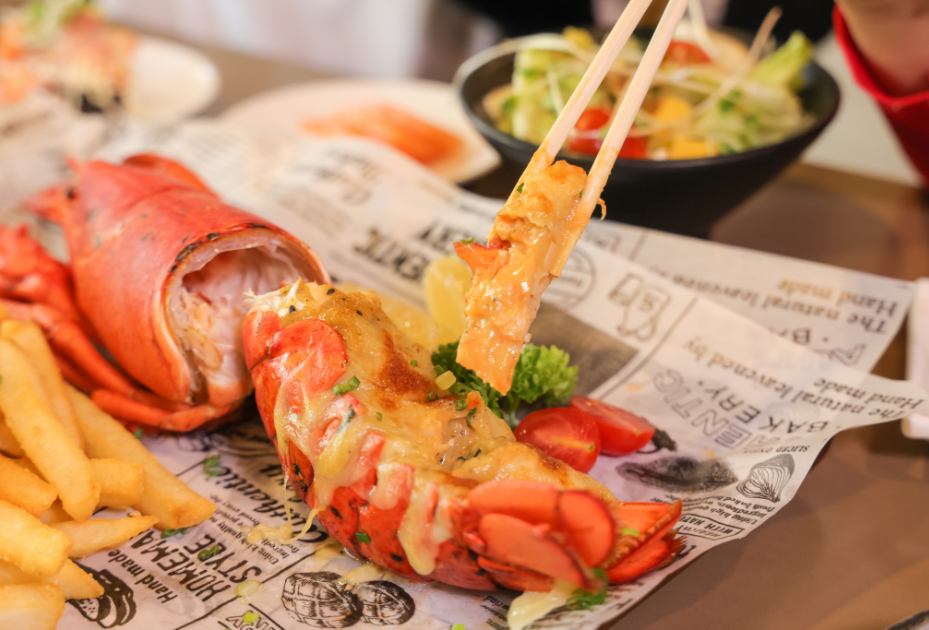The Carnegies and Rockefellers tried to silence him with jail time. That didn't work so well.
Eugene V. Debs was a union leader, Socialist, and agitator who got 1 million+ votes for president more than once. One of those times was while he was in prison.
These days, the word "Socialist" has various connotations, most of them not so good. (Well, for people who have been educated and raised in the United States anyway.) But at one time, the Socialist Party was a somewhat viable third party here, and at the very least, it captured the hearts and minds of millions of working-class and middle-class people who understood the times they lived in required something more than the status quo.
This was turn of the century 1900, the era of extreme capitalists, sometimes referred to as "Robber Barons," that consisted of the very wealthy and everybody else. Those 1% of the 1% fought hard to keep regular people as poor as they could, and they kept every penny they squeezed from the working poor. (Remind you of another time, say … recently? Hmmm.)
In his youth, Debs helped organize the American Railway Union, which was instrumental in shutting down most rail travel west of Detroit when workers went on strike in the summer of 1894 after massive cuts in pay, orchestrated by the big-name families of the time who owned the rails and everything associated with them — people like John D. Rockefeller, J.P. Morgan, and Andrew Carnegie. Much like now, politicians were bought and paid for by those same kinds of families. But also, the press, the courts, the police, and even President Grover Cleveland fought hard to break the strike. The National Guard (called out by Cleveland) finally dealt the biggest blow to the workers and brought it to an end. 13 strikers were killed, the strike itself was broken, and Debs received his first prison sentence.
The Illinois National Guard confronts striking American Railway Union members during the Pullman Strike in 1894.
In his six months behind bars, Debs read a lot, including Karl Marx and some of his supporters and fellow socialist writers. He changed from Democrat to Socialist upon his release from jail.
He spoke at various events around the country. He helped found the first Socialist Party in 1901. It took just over 10 years for it to grow to a point where Debs received over a million votes for president as a member of that party. Imagine — 1 million votes as a Socialist candidate for president. It would be unheard of today.
In that time, he also helped found the Industrial Workers of the World, or the IWW. The "Wobblies," as they came to be known, was very popular for about 20 years and became such a threat to the powers that be (and even to some of the more progressive wings of the Democratic and Republican parties) that by within a few years of the end of World War I, it was effectively dismantled. Many of its leaders were deported and jailed, and internal conflicts took a lot of its remaining energy. It still exists today, though.
The lead-up to World War I was intense, and it was filled with bastardizations of "patriotism" and other phrases that are still used today to justify war. The IWW wasn't the only recipient of attacks from the government on radical, anarchist, and antiwar groups, however. It certainly was a time when challenging the war machine in any way was risking being labeled a traitor or a spy. Hence, Debs and the Socialist Party were also being watched and sometimes pursued under "sedition" laws.
Debs was not against war per se, but he had his own way of looking at what it really was. Here's one of my favorite quotes from him about war:
"I am not a capitalist soldier; I am a proletarian revolutionist. I do not belong to the regular army of the plutocracy, but to the irregular army of the people. I refuse to obey any command to fight from the ruling class, but I will not wait to be commanded to fight for the working class. I am opposed to every war but one; I am for that war with heart and soul, and that is the world-wide war of social revolution. In that war I am prepared to fight in any way the ruling class may make necessary, even to the barricades."
He refused to allow the Socialist Party to join forces with the various Communist parties that were active at the time, believing that the more moderate Socialist Party platform would win more hearts and minds. Considering that we now take for granted a lot of the things it fought for, the platform was radical for the time. It included:
- A minimum wage
- An end to child labor
- Rights for black Americans
- Improving working conditions
- Increasing the number of people who can vote
The nerve of those damned Socialists. It has been argued that the fact that the popularity of Debs and the Socialist Party, as well as what they stood for, pushed Democrats and even Republicans of the time further to the left.
On June 16, 1918, Eugene Debs delivered his final speech before heading to prison. As World War I raged on across the world, he spoke these words near a jail where several of his fellow Socialist Party acquaintances were housed for "antiwar agitation." 1,200 people attended the party convention. He took advantage of the audience, and the moment in history, to speak to the crowd.
The actual speech is below, and part of it is re-enacted here by actor Mark Ruffalo.
"These are the gentry who are today wrapped up in the American flag, who shout their claim from the housetops that they are the only patriots, and who have their magnifying glasses in hand, scanning the country for evidence of disloyalty, eager to apply the brand of treason to the men who dare to even whisper their opposition to Junker rule in the United Sates. No wonder Sam Johnson declared that "patriotism is the last refuge of the scoundrel." He must have had this Wall Street gentry in mind, or at least their prototypes, for in every age it has been the tyrant, the oppressor, and the exploiter who has wrapped himself in the cloak of patriotism, or religion, or both to deceive and overawe the people.
Every solitary one of these aristocratic conspirators and would-be murderers claims to be an arch-patriot; every one of them insists that the war is being waged to make the world safe for democracy. What humbug! What rot! What false pretense! These autocrats, these tyrants, these red-handed robbers and murderers, the 'patriots,' while the men who have the courage to stand face to face with them, speak the truth and fight for their exploited victims — they are the disloyalists and traitors. If this be true, I want to take my place side by side with the traitors in this fight. Wars throughout history have been waged for conquest and plunder. In the Middle Ages when the feudal lords who inhabited the castles whose towers may still be seen along the Rhine concluded to enlarge their domains, to increase their power, their prestige and their wealth they declared war upon one another. But they themselves did not go to war any more than the modern feudal lords, the barons of Wall Street, go to war. The feudal barons of the Middle Ages, the economic predecessors of the capitalists of our day, declared all wars. And their miserable serfs fought all the battles. The poor, ignorant serfs had been taught to revere their masters; to believe that when their masters declared war upon one another, it was their patriotic duty to fall upon one another and to cut one another's throats for the profit and glory of the lords and barons who held them in contempt. And that is war in a nutshell. The master class has always declared the wars; the subject class has always fought the battles. The master class has had all to gain and nothing to lose, while the subject class has had nothing to gain and all to lose — especially their lives.
They have always taught and trained you to believe it to be your patriotic duty to go to war and to have yourselves slaughtered at their command. But in all the history of the world, you — the people — have never had a voice in declaring war. And strange as it certainly appears, no war by any nation in any age has ever been declared by the people.
And here let me emphasize the fact—and it cannot be repeated too often—that the working class who fight all the battles, the working class who make the supreme sacrifices, the working class who freely shed their blood and furnish their corpses, have never yet had a voice in either declaring war or making peace. It is the ruling class that invariably does both.
They alone declare war, and they alone make peace.
Yours not to reason why;
yours but to do and die.
That is their motto, and we object on the part of the awakening workers of this nation.
If war is right let it be declared by the people. You who have your lives to lose, you certainly above all others have the right to decide the momentous issue of war or peace."
His words were later used to sentence him to prison for 10 years. It was from there that he received nearly 1 million votes for president in 1920, running as simply Convict No. 9653.
Debs' health deteriorated in the horrid prison conditions of the time, and eventually, his sentence was commuted when cooler heads prevailed in our country. He later died in a sanitarium, a kind of hospital for those with long-term illnesses.
There's a museum in his birthplace, Terre Haute, Indiana, that is worth a visit. It's been 20 years since I was there, but it left quite an impression on me, as did seeing his handwritten quotes and the original publications they came from. Here are a few more gems:
"Those who produce should have, but we know that those who produce the most — that is, those who work hardest, and at the most difficult and most menial tasks, have the least." — Walls and Bars, 1927
"I have no country to fight for; my country is the earth; I am a citizen of the world." — "When I Shall Fight," Appeal to Reason, Sept. 1915
"I am opposing a social order in which it is possible for one man who does absolutely nothing that is useful to amass a fortune of hundreds of millions of dollars, while millions of men and women who work all the days of their lives secure barely enough for a wretched existence." — Statement to the Court upon Being Convicted of Violating the Sedition Act, Sept. 1918



 Student smiling in a classroom, working on a laptop.
Student smiling in a classroom, working on a laptop. Students focused and ready to learn in the classroom.
Students focused and ready to learn in the classroom.
 A woman telling you to be quiet.via
A woman telling you to be quiet.via  A woman telling you to be quiet.via
A woman telling you to be quiet.via 
 Fish find shelter for spawning in the nooks and crannies of wood.
Fish find shelter for spawning in the nooks and crannies of wood.  Many of these streams are now unreachable by road, which is why helicopters are used.
Many of these streams are now unreachable by road, which is why helicopters are used. Tribal leaders gathered by the Little Naches River for a ceremony and prayer.
Tribal leaders gathered by the Little Naches River for a ceremony and prayer.
 A man standing up inside a plane
A man standing up inside a plane A hospice nurse with her female patient.
A hospice nurse with her female patient. 
 Can't quite imagine this on the average American school lunch tray.
Can't quite imagine this on the average American school lunch tray. A typical American school lunch.
A typical American school lunch. Kids eating lunch.
Kids eating lunch.